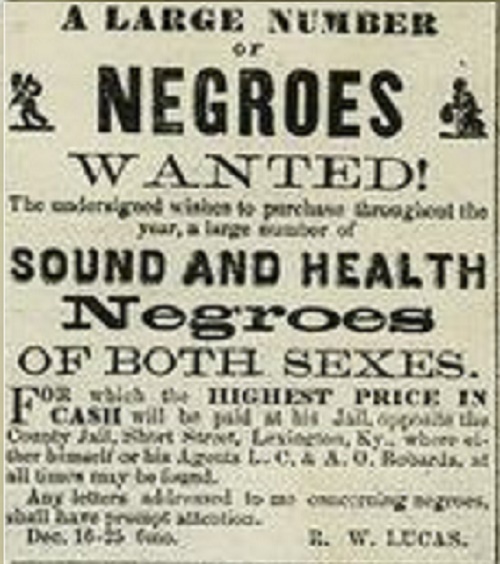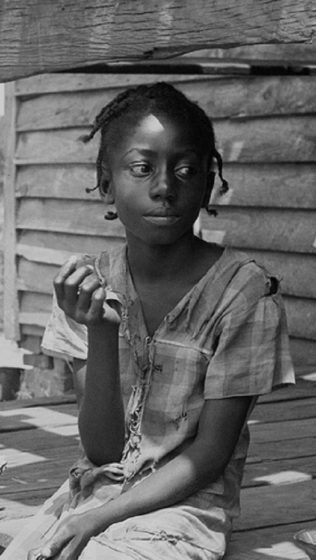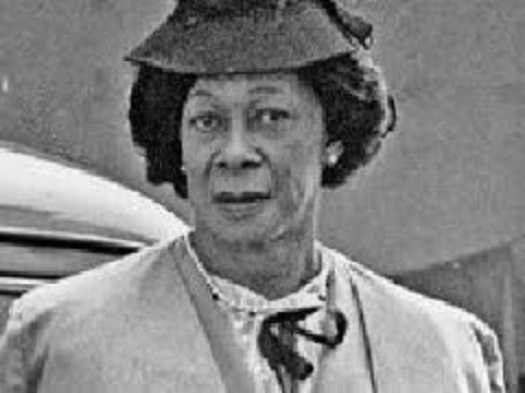The Brand Keeping Oprah in Business
Tyler Perry doesn’t care what the critics think of his work. His audience always finds it.
“Really? Tyler Perry? I couldn't stand
Think Like a Man.”
I should have corrected her, but my bartender at this hookah bar in downtown Atlanta had already turned around to fix another drink. It might have been the perfect reaction to my telling a stranger — and a black woman, at that — that I had just spent the afternoon with Perry. She was not only confused and borderline upset that I had done such a thing, she was blaming him for a movie she hated — one he didn’t even make.
As a brand name, Tyler Perry is recognizable. He’s gotten extremely rich producing movies, TV shows, and stage plays featuring predominantly black casts and Christian themes that are about as subtle as trumpet fanfare. In some parts of the country, Perry might go unrecognized, and in others, he’s well known but dismissed. For years Perry's been maligned,
and Spike Lee famously described his work as “coonery” a few years back, fueling a complicated debate about race, class, and the duty of black storytellers to their community.
Just a week earlier, in Flatbush, Brooklyn, though, Perry was unconditionally appreciated. The enthusiastic Sunday afternoon line at the Kings Theatre post-church performance of
Madea on the Run — Perry’s 20th touring stage play in 23 years — went down the block and around the corner. It was one of seven sold-out performances in a four-day stretch, and the audience was as old, black, and female as I would have imagined. I’d watched a few of these plays on tape at family gatherings over the years, so I could guess that the group in line was probably more Christian than not, with a taste for gospel, laughter, and some overarching moral conclusion, told through the accessible lens of a family drama. And I knew they preferred to be entertained by black people, specifically Perry.
I did not expect to enjoy this show. This was Tyler Perry, after all, and I’m a professional cultural critic. But after a few minutes, I slipped up and laughed. Then Perry — playing Madea, an old-lady character with a penchant for skipping church and smoking weed but then schooling “good Christians” who aren’t actually as pious as they seem — forgot a line and said, “I’ll remember it, I wrote the thing.” Right there, I really laughed.
During the curtain call, Tyler Perry walked out last, dressed as himself — jeans, a shirt, a black fitted cap. “You guys have always been so faithful to me,” he said to the crowd, which was still in the middle of a standing ovation. “Always right there by my side, always supporting me, even when it wasn’t that great.” He then broke into an old-lady voice that wasn’t quite the Madea old-lady voice, close to voice of the old lady two seats down. “Bless his heart, he’ll get better.” He thanked them for watching his
four television shows currently on OWN (the Oprah Winfrey Network), especially the breakout hit
The Haves and the Have Nots, the network’s highest-rated show ever, which will return January 5. The season-three finale pulled in 3.71 million viewers, making it the third-highest scripted cable telecast of the summer, only behind episodes of
Pretty Little Liars and
Fear the Walking Dead. "Let’s face it, there’s no need for me to go out there [onstage] anymore,” Perry would tell me later. “The only reason is to be in front of them, and to tell them how much I appreciate them, make them laugh, see their faces — and it does a great thing for me and my heart, too. It just gets me reconnected." There’s an argument to be made that these days, Perry is largely responsible for keeping the Oprah endeavor relevant, and with shows I'd only just learned existed. But that’s how Perry has always operated: success in plain sight.
Perry was born in New Orleans to an abusive father and a mother who taught preschool. While he was estranged from his father — at 16, he changed his first name from Emmitt to Tyler so as not to be his father’s namesake — he loved his mother. “He worshipped the ground she walked on,” said Cicely Tyson, a frequent collaborator who met Perry’s mother before she died in 2009. “Took care of her like she was his child.” Perry grew up very poor. “My family never went to a restaurant together, we never went to the movies together. Vacation, we never did that,” he said as we pulled out of his film studios, nestled in the predominantly black Greenbriar neighborhood of Atlanta — locally famous for its mall, flea market, and a shop dedicated to gold teeth. It was just the two of us in his Porsche Cayenne, weaving through the streets of the city that he’s called home since the early 1990s. Like many black college-age adults of the ’80s and early ’90s — even those who, like him, didn’t go to college — Perry first made his way to Atlanta for Freaknik, the unofficial black spring-break extravaganza. But what drew him into the city more permanently wasn’t the parties, he said, but the black businessmen and women, a type he’d never seen in real life. “It was the promised land, I tell you. And I dreamed here like never before.”
I was reminded of that sentiment, both spiritual and aspirational, by what I saw when I entered Tyler Perry Studios earlier that morning. The phrase “
A Place Where Even Dreams Believe” was emblazoned across the glass doors of the lobby. A cluster of stained-glass windows greeted you upon walking through the glass doors. And as you got closer to his office, the walls increasingly filled with massive photos that told the history of black Hollywood, from Josephine Baker to Will Smith. It's clear that Tyler Perry sees himself as part of a lineage, that his present-day storytelling continues the work of those he claimed as his ancestors.
With Hartsfield-Jackson Airport in the background, we pulled up to Perry's first apartment building in Atlanta, a complex that’s equal parts subdivision and housing project. While he lived here in his early 20s, his commute included a five-mile walk to the train, which would then take him to the bus, which would then take him to his job as a bill collector on the north side of town — at least, until he was evicted for being unable to pay his own bills. “I was devastated when I came home and all my things were out on the street, in the rain,” he said. “I didn’t have much, but the thing I was most upset about was my stereo.” But despite the setbacks, it was in this apartment that Perry began his creative exploration. After watching an episode of The Oprah Winfrey Show that focused on the therapeutic powers of writing, he began keeping a diary, writing entries that would become his first play. In 1992, the self-funded
I Know I’ve Been Changed — a gospel musical about adult characters still dealing with childhood abuse, and how God helped them overcome their struggles — made its way to the stage. It was not well received. But he continued to work on the play for the next six years, finally finding success in a local theater in 1998. Things happened quickly after that: a two-year national tour, another play, and then another one after that, 2001’s Diary of a Mad Black Woman, which would become the inspiration, four years later, for Perry’s first film, starring Perry himself as Madea.
The movie version of
Diary of a Mad Black Woman was widely panned by critics. Roger Ebert
ended his review with, “I've been reviewing movies for a long time, and I can't think of one that more dramatically shoots itself in the foot.” The New York Times’ Stephen Holden
described it as “soap opera to slapstick to church sermon and back,” and “Cinderella meets Amos ’n’ Andy in Sunday school.” It didn’t matter. Perry was already a phenomenon, having earned tens of millions of dollars from his plays, and the movie opened at No. 1 at the box office, grossing $21.9 million in its first weekend. Fifteen hugely profitable films would follow, as well as six television shows, most of which had Perry’s name in the title, just so you never forgot who was behind the empire. He was not only successful but groundbreaking, too, creating roles that did not exist anywhere else on the same scale for black and other minority actors. “Let’s go down the list,” Perry said to me confidently. “
Idris Elba, first movie.
Sofía Vergara.
Taraji.
Kerry Washington.
Viola Davis. I honestly don’t know if I had anything to do with that success, all I’m saying is that they all stopped by on their way to wherever they were going.” As years passed, he became so important to the local economy that the current mayor of Atlanta, Kasim Reed, personally persuaded him to
keep his studios in the city instead of moving them to the suburbs — which resulted in Perry purchasing a large portion of a decommissioned Army base, Fort McPherson. He was also a man who amassed such a fortune that he could afford to purchase a portion of a decommissioned Army base.
Perry’s financial success is near impossible to comprehend — unless you’re his inspiration turned friend and colleague, Oprah Winfrey. “This just happened last week — it had never happened before,” she told me on the phone. (The list of people for whom Oprah will talk to reporters: probably short.) “So he was at Teterboro Airport, leaving, and I was coming. And our planes pulled up next to each other. And we just had this howling moment, like, ‘How in the world did this happen to us?’ And we have this ‘my jet or yours’ moment. Both he and I are these little black kids who came from nowhere and now get to live this amazing life. And we are in full awe of it, all the time, and it never becomes something that you take for granted.”
This is simultaneously the least and most relatable story I’ve ever heard. It’s a billionaire telling a tale about a chance encounter with the private jet of her near-billionaire friend. On the surface, there’s not much there to identify with. But when you consider the true rags-to-riches story that is their lives — both rags and riches to extremes that the average person could not fathom — the story registers. And that vacillation between absurdity and commonality, that ability to identify with the rags while living among the riches, is the foundation of Perry’s empire.
To Perry, though, it seemed as though the more powerful he got, the more his career was undermined. His fans could never shout their reasons for liking Tyler Perry at the same volume as those who thought his material was bad — and many of the most vocal critics are themselves black, angry at what Perry is peddling, the characters they see as caricature, the narratives his stories reinforce. In the same 2009 interview in which Spike Lee referred to Perry’s work as “coonery,” Lee said, “I see these two ads for these two shows [Tyler Perry’s Meet the Browns and House of Payne], and I am scratching my head. We got a black president, and we going back to
Mantan Moreland and
Sleep n’ Eat?”
"That ‘coonery’ buffoonery was a direct Spike Lee quote,” Perry told me. “And that’s what everybody started to say, with those words in particular. But you have to be careful, because our audiences cross-pollinate a lot of times. There’s a lot of my audience that likes what he does. And there’s a lot of his audience that likes what I do. And when you make those kind of broad, general strokes, and you paint your audiences in them, they go, ‘Wait a minute, are you talking about me? Are you talking about my mom?’"
Perry has often ignored his critics. (Though he did once tell Lee to “kiss my ass.”) Perhaps because it doesn’t seem to affect his profits, it genuinely doesn’t bother him. But chances are it does. Chances are it cuts deep. Because most of the criticisms aren’t about his business sense, his ability to direct, or his acting chops — typically, they’re about him as a net loss for the black race.
Perry lives in a 17-acre compound in the wealthy, very white West Paces Ferry neighborhood. The former owner of the land was a longtime segregationist:
Moreton Rolleston, the owner of the downtown Heart of Atlanta motel who was so against integrating his establishment that he took his gripe to the Supreme Court. (He lost.) A neighbor once told Perry that Rolleston stated in the deed of the home, “You cannot sell to niggers.” Waiting for the gate to his home to open, Perry finished his story about Rolleston, saying, “To have this property was such poetic justice.” He clearly derives joy from being in places and spaces in which he was never supposed to be allowed. And in those spaces, his focus on his lineage and his past only intensifies. “I told this story at a party I was having, and Congressman John Lewis was in the back listening to it,” he said. “After the party, he walked up to me in tears and said, ‘I was one of the young men that sat in at his lunch counter trying to integrate. And here I am, dancing on the property that he once owned.’”
I was suddenly hit with the reality that I would need to be honest with Perry. I knew I had been wrong about him, to some degree, and I wanted him to know that. But I’d also have to tell him that I spent years disliking him and his work, thinking his characters were negatively affecting me as a black person in a white world. That I knew black people were often judged by what people saw or heard, more than what they knew. That I felt black people were often collectively judged by their perceived failures instead of their perceived successes — the latter of which have long been treated as exceptions. That I knew research existed that analyzed the complicated relationships black people have with the images we see of ourselves on the screen, telling us that those images can inspire, but they can also cause great anxiety. That some black people took black characters merely as “entertainment,” but others saw them as images that they needed to instill racial pride, strengthen racial identity, counter racism, and be role models.
A decade of thoughts about Tyler Perry ran through my mind in that moment, and even if he’d made me laugh in Brooklyn, I thought I owed it to him — and myself — to say that, for years, when he was the foremost black person presenting black characters and telling black stories, I thought Tyler Perry’s films and shows made my life harder.
“So did a lot of people,” Perry said, calmly, after I told him how I’d felt. “Which is surprising to me. Let me tell you what took me aback about that, when people were like, ‘How dare you put fat black people on television, these are caricatures, these are stereotypes’ — I was so offended because my aunt’s fat. My mother’s fat. My cousins are fat. People who are like, ‘How dare you — these harken back to Mammy, Amos ’n’ Andy.’ I would hear all these things, and I would go, hmmm.” When
Amos ’n’ Andy is mentioned, it’s usually code for
minstrelsy, but Perry disagrees. In fact, he thinks the real shame was not that black actors played roles on Amos ’n’ Andy, but what happened to them later, when they lost work after the NAACP boycotted the TV show and it was canceled.
It comes down to the question of who gets to decide what’s good for black people. Should all kinds of blackness be shown, or should its representation be curated? To Perry, no one should have the authority to make that call. To others, however, there is a clear line between what’s good for “us” and what isn’t. Much of the backdrop of the intellectual debates between scholars like Booker T. Washington and W.E.B. DuBois came down to this, too, whether good fortune and success is dependent on some approval from whites, as well as on using a group of select blacks to represent the whole. We’re a century removed from those thinkers — but in some ways, we’re still debating those ideas, and Tyler Perry’s work is at the center of it.
When you talk to someone in Perry’s inner circle, it’s difficult to separate the objective from the subjective. What makes this especially difficult is that many of the people in his inner circle happen to be heroic black figures. Perry picked two women to be the godmothers of his now-1-year-old son, Aman: Oprah and Cicely Tyson. In no way would you expect a godmother to give you an unbiased opinion of her godson's father, but when one of them is Cicely Tyson, you have to at least listen.
“He has been one of the greatest blessings to us as a race of people, in terms of what he’s done for us. There are people in the business that never dreamed that they would have an opportunity to be on the stage, to be on the film, to be on television. And look where they are,” she told me. “And you have to say, if it were not for him, they wouldn’t be.”
The way Oprah and Tyson speak about Perry is very protective, both motherly and sisterly, and neither thinks he’s getting his just due. Never in my life had I thought of Perry, this massively successful man, as an underdog. You think about Oprah and Tyler and their money and their jets — not Oprah and Tyler as people, who in some ways haven’t abandoned their roots and original audiences. So when you look at Perry, and the surface-level polarity between him and his audience, it’s easy to think he’s preying on this vulnerable, lower-class group by feeding them this lowbrow comedy.
There’s also the other option, however, which is that these are his people. His audience is the group he still identifies with, and feels part of, and sees the humanity of, in a way both Hollywood and a sizable chunk of the American public do not understand. It’s an audience who doesn’t see this as fringe entertainment, an audience who sees this as the best entertainment, the only entertainment.
Perry, though, doesn’t see this argument as being about race so much as it is about class. “In some parts of the country, the audience is 60 percent white. And then I went to El Paso, and it was 60 to 70 percent Latino. And then I realized it’s not even about race as much as it is about stories that people can relate to,” he told me. “I know for a fact that a lot of my audience cannot afford to just get in the Volvo and go to a therapist and spend the day off and go to the spa,” he said. “The laughter and the dress and all of that stuff, it’s just the anesthetic to say, ‘Are you numb now?’ Let’s talk about some real issues,” like the relationship between a mother and her daughter, like drugs, like what's behind infidelity. “There are so many people that society says their stories don’t matter because they’re poor.”
In other words, he still feels like an outsider, no matter how much money he’s worth. It’s almost as if his work is a purposeful way never to become a part of the group he loathes the most: the elite. “It is unfair for black people to say, ‘Carry my story in your story — show me in your story,’” he says. “And for people to say that they’re stereotypes of black people, that’s bullshit — it’s offensive. These are real versions of us. And every one of us has the right to tell our own story.”
Enjoy




















